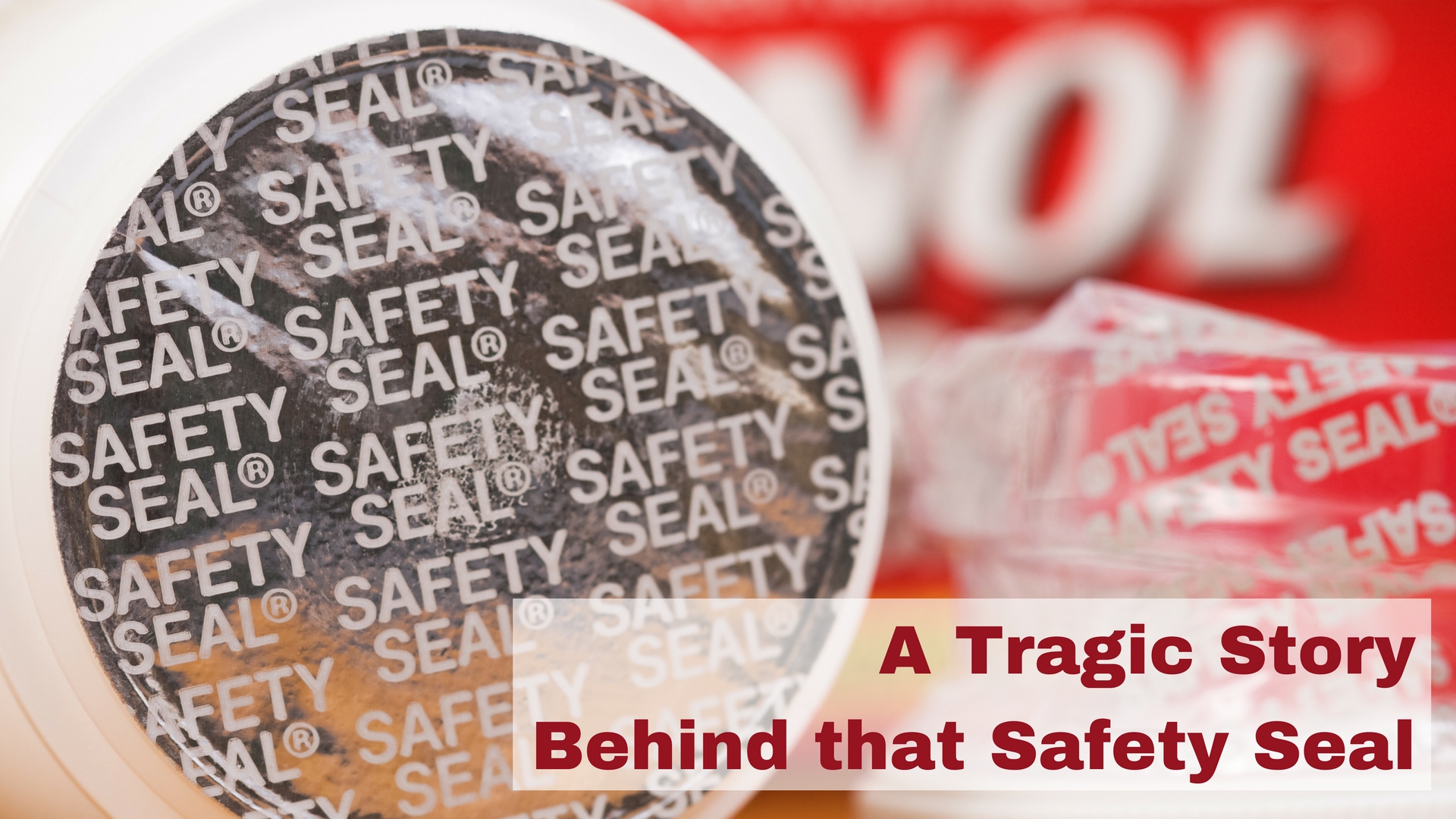Dan Keeney joins Tim for the first in a two-part series that starts with a comprehensive look at the 1982 Tylenol poisonings that killed seven people in the Chicago area and has been described by the New York Times as “The Recall that Started Them All.” But it was much more than just a recall. It’s the story of unsolved set of murders, product tampering, and a change in the way we think about product safety and how companies should respond in a crisis. In the end, it’s about rebuilding trust.

It started on Sept. 29, 1982. Mary Kellerman, a 12-year-old girl who lived in a suburb of Chicago called Elk Grove Village told her mom and dad she had a sore throat and runny nose. She took one extra-strength Tylenol capsule. What no one knew then was her medicine was laced with potassium cyanide poison. Mary died that morning.
Later that day, a 27-year old mail man named Adam Janus of Arlington Heights, Illinois, died from what was at first believed to be a heart attack, but soon later, the cause would be discovered to be cyanide poisoning.
Adam’s brother Stanley and Stanley’s wife Theresa came over to grieve with family that day. Given the stress of the situation, both Tylenol Extra Strength capsules from the same bottle Adam had used earlier that day. Stanley died the same day and Theresa died two days later. Three members of the same family dead.
In the end, seven people had died over a period of just a few days, and all of them had taken Tylenol Extra Strength. All were in the Chicago area.
Meanwhile at the Company….
The first call came in to Johnson & Johnson the next morning. It was from a reporter from the Chicago Sun-Times. He needed information about McNeil Consumer Products’ history and current sales. Johnson & Johnson owned 150 companies and one of them was McNeil Consumer Products, the maker of Tylenol.
When a PR manager checked for the info by calling down to McNeil, he learned that some people were poisoned with Tylenol capsules. By then, that Sun Times Reporter was back on the line. He told the company that the Cook County Medical Examiner’s Office reported three people died in Chicago after being poisoned by Tylenol capsules. He wanted a comment now.
Inside of J&J word traveled fast. Johnson & Johnson’s Chairman James Burke was brought up to speed quickly and he assigned McNeil’s chief David Collins to handle the immediate crisis response.
Things unfolded quickly.
The phones were ringing like crazy at both McNeil and Johnson & Johnson.
The company realized it needed the media to accurate information to the public as quickly as possible and prevent a panic. And it needed the media as a source of information itself.
In those first hours, the company fielded calls from everywhere, learned of false reports of other poisonings, and spent large amounts of time and resources checking and verifying facts and rumors.
Getting to the Root of the Problem
Collins and the management team did not believe the poisonings did not occur at their plant. Based on what they knew of their own processes, if someone had dumped a dose of cyanide so small it could not be detected into a drug mixing machine, the poison would have been so diluted to the point of being almost harmless. In addition, there would have been contaminated pills all over the country. Instead, the poisonings were traced only to Chicago.
When on Friday morning the company learned that a sixth victim had been poisoned with Tylenol capsules from a lot manufactured in Round Rock, Texas, this proved that the tampering had to have taken place locally in Chicago and not in the manufacturing process, because poisoning at both plants would have been almost impossible.
In the first 48 hours, James Burke, the chairman of all 150 companies decided to captain the crisis team and took personal charge.
By Monday he went to Washington to meet with the FBI and the Food and Drug Administration. He wanted a total recall of all Extra-Strength Tylenol capsules.
The FBI and the FDA advised against this so as not to give the perpetrator a sense of victory, nor to create more panic. That weekend, however, there was a new reporter of an apparent copycat strychnine poisoning with Tylenol capsules in California. That is what triggered the FDA to support Burke’s decision to recall all Tylenol capsules. This represented the recall of 31 million bottles with a retail value of over $100 million.
Johnson & Johnson’s response was notable for its candor. The afternoon of the first deaths, the company set up toll-free numbers manned by company employees. It sent 450,000 telex messages to doctors’ offices, hospitals and trade groups. It stopped all Tylenol advertising.
In the end, more than 8 million capsules were tested for poison, and 75 were found to contain cyanide. All were for sale in the Chicago area. The perpetrator was never found.
About this Episode’s Guest Dan Keeney
Dan Keeney, APR is the president of DPK Public Relations, a public relations firm specializing in crisis communications planning , crisis response and crisis recovery as well as media relations, marketing communications and spokesperson training. He has led numerous high-profile communications initiatives, from corporate restructurings to product introductions and from international crisis communications response to grassroots engagement efforts.
, crisis response and crisis recovery as well as media relations, marketing communications and spokesperson training. He has led numerous high-profile communications initiatives, from corporate restructurings to product introductions and from international crisis communications response to grassroots engagement efforts.
Dan is a five-time recipient of the public relations field’s highest honor, the Silver Anvil Award from the Public Relations Society of America. He was part of the team that was recognized with the 2017 Best of Silver Anvil Award for their work on NASA-Johnson Space Center’s Year In Space program. NASA first engaged Dan in 2004, during its darkest hours following the loss of the Space Shuttle Columbia. His work has been pivotal in building public trust and support for continued human space exploration beyond lower Earth orbit.
Dan is a former broadcast journalist who worked as a reporter, anchor and talk show host in Virginia and Chicago before working as a network director of news and programming. A graduate of the University of Colorado School of Journalism, he is a past president of the Houston Chapter of the Public Relations Society of America and enjoys a full life with his wife of 33 years, Julie.
Some Links
- New York Times: Tylenol Made a Hero of Johnson & Johnson – The Recall that Started Them All
- Time: How Poisoned Tylenol Became a Crisis-Management Teaching Model
- UPI: 35 Years after Landmark Recall, Tylenol Deaths Still Unsolved




